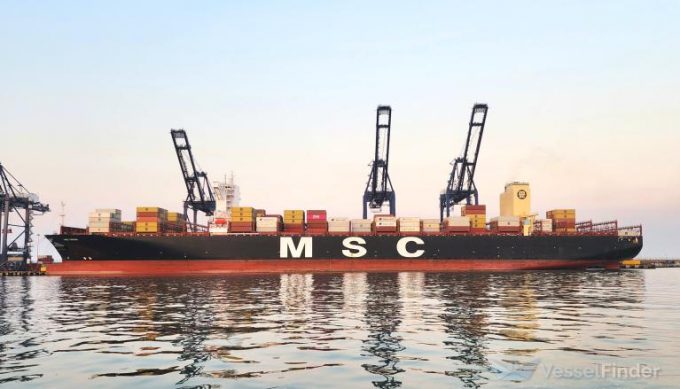Panama Canal crossings resume, but some time before full normalisation
All of the liner services that were affected by the limits on Panama Canal transits ...

Tight availability of boxships and equipment, last seen during Covid, is replaying as more and more vessels reroute round the Cape of Good Hope.
Linerlytica’s latest report, issued yesterday, says the capacity of boxships diverted to the Cape route will pass the 5m teu mark within weeks, as avoiding the threat of Houthi attacks continues to absorb record newbuilding deliveries.
Yesterday it was reported that the Houthis claimed to have attacked the MSC Orion, in the Arabian Sea, as well as two US naval ships, but the reports have not been confirmed.
Containership fleet capacity stands at 29.37m teu, and will reach 30m teu by the end of June. Although nominal fleet growth has reached 10% year on year, diversion to the Cape has rendered effective capacity growth on the Asia-North Europe, Asia-Mediterranean and transpacific routes at just 3% this year.
Globally, effective capacity on all 33 inter-regional linehaul routes tracked by Linerlytica has shrunk 4% from last year, with reduced capacity deployed on Red Sea/Middle East/Mediterranean routes dragging down the overall average, despite the growth in the main east-west trades.
Demand for ships has filtered through the charter market, which, according to Linerlytica, went into overdrive last week. Liner operators have committed to securing ships at higher rates for longer periods.
CMA CGM, Hapag-Lloyd, Maersk and SeaLead were the most active charterers, extending existing charters while fixing more ships.
SeaLead agreed to charter the 2010-built 6,758 teu Racine from Danaos for $32,500/day for two years, while Hapag-Lloyd chartered Euroseas’ newly built 2,782 teu Leonidas Z for $20,000/day for 23-25 months.
The consultancy said: “Tonnage demand is still not fully covered, despite the high level of new ship deliveries, as the surging freight market is supporting the rise in charter rates in all segments except for the 1,100 teu and smaller sizes. Container equipment and prompt vessels remain in short supply. New containers produced in China are booked until the end of June, while charter rates are rising sharply for ships above 1,700 teu.”
Mai Boliang, chairman and CEO of China International Marine Containers, the world’s largest container manufacturer, said in March that a rebound in container demand had been seen since Q4 23, when the Red Sea crisis started.
And the shortage of ships and containers is forcing carriers to increase vessel speeds again, with ships on the Cape route doing 18-20 knots currently.
Comment on this article
John Gray
April 30, 2024 at 4:20 pmWhen will the Egyptians put pressure on the Iranian’s/Houthi’s to end the conflict? They cannot afford to continue to lose multiple millions of dollars daily in lost Suez Canal transit fees.